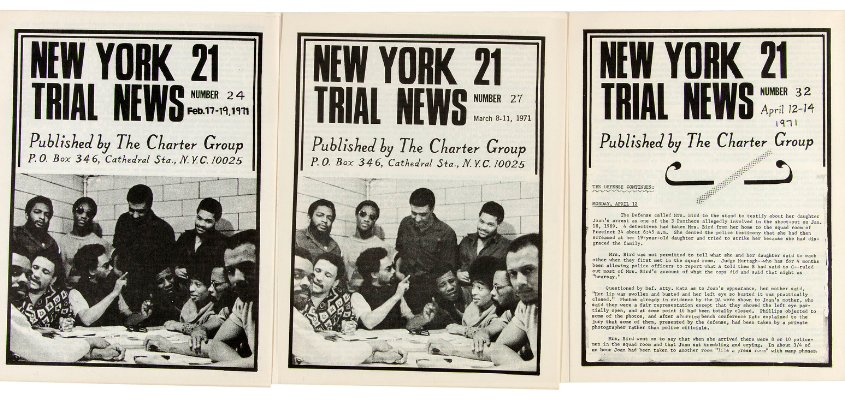
The trial of the New York Panther 21 was the moment in the Black liberation movement that ushered in an era of intensified state repression and violence and increasingly aggressive tactics by radical forces.
Fifty-five years ago on April 2, 1969, the NYPD’s Bureau of Special Services (BOSS) swooped down on 21 members of the New York Chapter of the Black Panther Party in pre-dawn raids across the city.
This was the public beginning of the infamous New York Panther 21 Conspiracy Trial. Only 13 members of the New York Panthers actually stood trial, among whom were Dhoruba Bin-Wahad, Afeni Shakur, Sundiata Acoli. The Panther 21 Conspiracy case at the time would become the longest and most expensive conspiracy trial in the history of the Manhattan District Attorney’s Office under the tutelage of the celebrated District Attorney, Frank S. Hogan. It would ultimately mark the most humiliating defeat of his career.
The Panther 21 Case as it would come to be known, became a cause celebrè of America’s anti-Vietnam war and anti-racist New Left and would highlight the public criminalization of Black radical movements by the then covert FBI CounterIntelligence Program, COINTELPRO and the federal government’s collaboration with local police agencies to kill and imprison Black revolutionaries.
The indictments of Bobby Seale, Chairman of the Black Panther Party, in New Haven, Connecticut for the FBI contrived murder of Alex Rackley, and his subsequent trial in Chicago along with White anti-war radicals known as the “Chicago Seven”, the murder of Chicago Panther leader Fred Hampton all followed within a year of the New York Panther 21 conspiracy indictment. The killings of Jonathan Jackson at the Marin County Courthouse, the Indictment of Angela Davis and her subsequent capture and trial, the murder of George Jackson in the California gulag, all followed in the wake of the New York Panther 21 conspiracy trial, and the subsequent acquittal of all its defendants two years later in May of 1971.
This legal repression and criminal persecution of the Black and White radicalism of the late sixties gave rise to the Black Liberation Army and the Weather Underground of the 70s and 80s as well as the imprisonment of scores of Black, White and Indigenous radicals like Dhoruba Bin-Wahad, Leonard Peltier, Sundiata Acoli, Sekou Odinga, Mutulu Shakur, and the forced exile of Assata Shakur, Michael Cetawayo Tabor, and Puerto Rican nationalists.
From that day in April to this day there are still Black and Indigenous political prisoners in jail: Mumia Abu Jamal, Imam Jamil Al-Amin (H.Rap Brown), Kamau Sididki, Veronza Bowers, Leonard Peltier, and others. The last of the generation of the loud.
Dhoruba bin-Wahad
Black Agenda Report
Dhoruba bin-Wahad is a former member of the Black Panther Party (BPP) and the Black Liberation Army (BLA). He was a leading member of the New York chapter of the BPP, a Field Secretary of the BPP responsible for organizing chapters throughout the East Coast, and a member of the Panther 21.